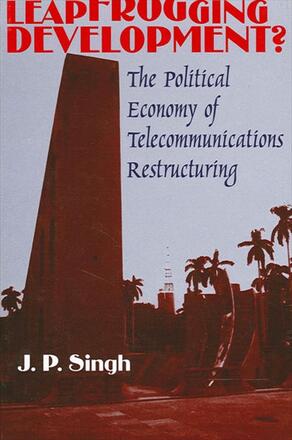
Leapfrogging Development?
The Political Economy of Telecommunications Restructuring
Alternative formats available from:
Examines how developing countries have restructured their telecommunications in order to "leapfrog" or accelerate development.
Description
Telecommunications restructurings are now seen as important barometers in the shift among developing countries toward market-based economies. They are often posited as helping developing countries "leapfrog," or accelerate their pace of development, and "connect" with the world economy. This book shows that most states in developing countries are unable to resolve the myriad pressures they face in restructuring important sectors like telecommunications to effect accelerated or "leapfrogging" development.
The scope, pace, and sequencing of restructuring varies according to how different types of states respond to micro sub-sectoral pressures or to macro-level pressures from coalitions of groups. After examining seven generalizable cases (Singapore, South Korea, Mexico, Malaysia, China, Brazil, Myanmar), the book examines India as an in-depth "most likely case. " Leapfrogging Development? proposes a unique framework that shows how groups and coalitions articulate development preferences and how different types of states respond to or shape these preferences.
J. P. Singh is Assistant Professor at the School of International Service, American University.
Reviews
"Singh … deftly dissects the faults of supply–side studies and presents his country–specific analysis. His penchant for tables to highlight arguments helps one keep an eye on the larger argument while following the many specific demand–side pressures in each country. " — Journal of Communication
"…this book is highly recommended … it will be seen as making a significant contribution to the political economy of telecommunications specifically and development studies more generally. " — Science Direct
"The book will be an important addition to the literature on economic development because of its focus on telecommunications infrastructure, that is increasingly viewed as crucial to economic competitiveness in a globalizing world economy. It is likely to be particularly interesting to specialists in the politics of information technology and economic development, but it also addresses broader issues such as globalization, that are generating high scholarly interest in all the social sciences. "—Jeffrey A. Hart, Indiana University